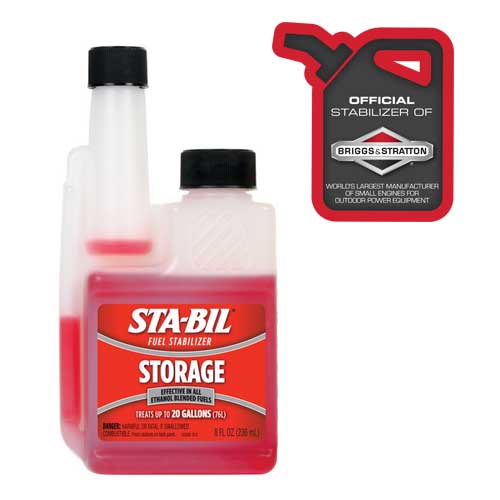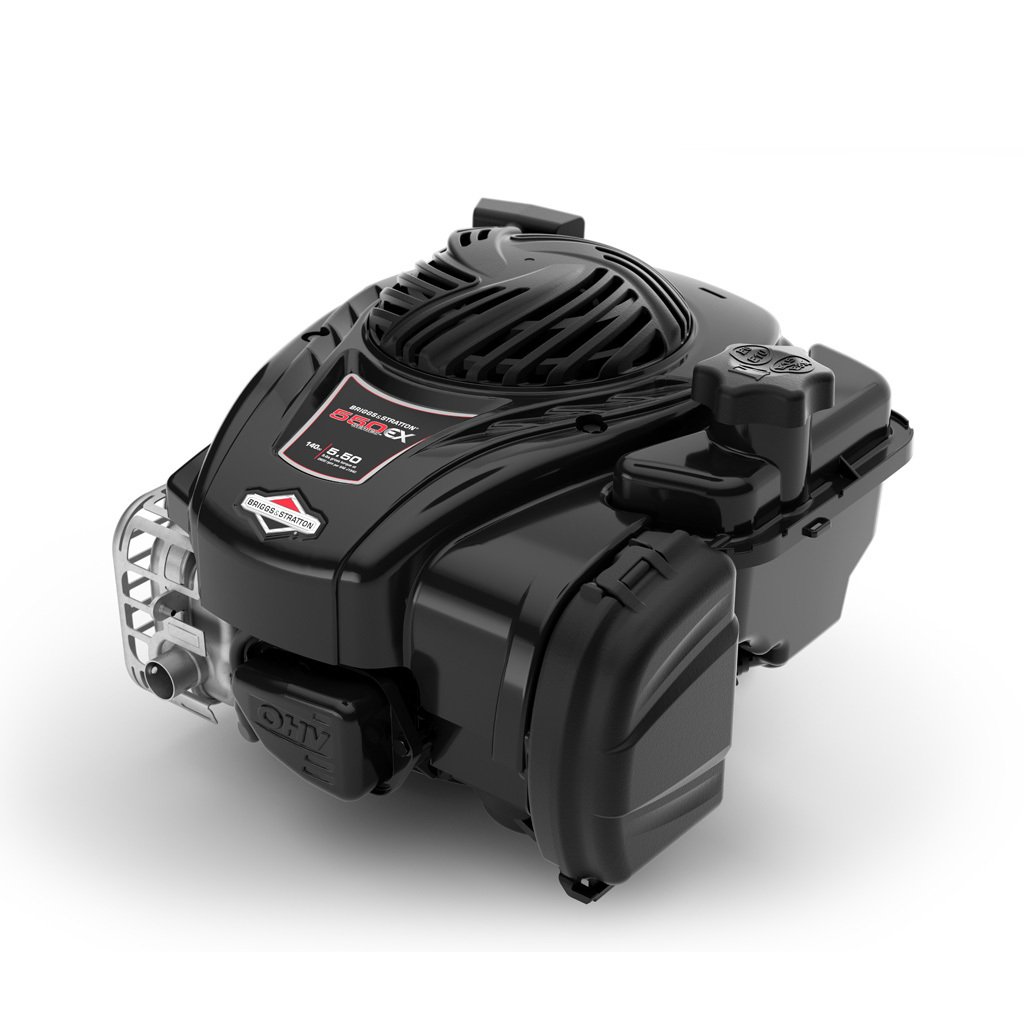How to identify a 2-Cycle engine and determine the best oil to gas ratio
Quick Links:
2 min read
Briggs & Stratton Admin : Updated on January 15, 2026

Fuel for your lawn mower or outdoor power equipment must meet these requirements:
Clean and fresh - fuel can begin to deteriorate in as little as 30 days
A minimum of 87 octane/87 Anti-Knock Index (AKI) / 91 Research Octane Number (RON); If operating at high altitude, see below
Gasoline with up to 10% ethanol (gasohol) or up to 15% methyl tertiary butyl ether (MTBE), is acceptable. Some fuel stations are now selling gasoline with up to 15% ethanol. This E15 product is not recommended or approved for use in small engines.
A canned fuel product can also be used. This fuel combines ethanol-free unleaded gasoline with a fuel stabilizer to prolong the life of the fuel.
Fuel Reid Vapor Pressure (RVP) rating, is equally as important as the octane rating. Gasoline refineries raise and lowers fuel RVP ratings (gasoline's volatility) seasonally to account for the differences in temperature. Note: low RVP fuel will cause hard or no start conditions in cold weather conditions.
Summer Fuel = low RVP rating
Winter Fuel = high RVP rating
** This rating varies from state to state also **
Note: LOOK BEFORE YOU PUMP! Do not use unapproved gasoline, such as E15 and E85. Do not mix oil in gasoline or modify the engine to run on alternate fuels. Use of unapproved fuels will damage the engine components, which will not be covered under warranty.
At altitudes over 5,000 feet (1524 meters), a minimum 85 octane / 85 AKI (89 RON) gasoline is acceptable. To remain emissions compliant, high altitude adjustment is required. Operation without this adjustment will cause decreased performance, increased fuel consumption, and increased emissions. Refer to your operator's manual for high altitude jet or consult your local authorized dealer for this information and service.
4 Stroke Cycle Spark Ignited Engines: Do not mix oil in gasoline, or modify engine to run on alternate fuels. This will damage the engine components and void the engine warranty
2 Stroke Cycle Spark Ignited Engines: Always mix a high quality, 2-cycle oil, such as Briggs & Stratton lawn mower oil, at a 50:1 gas to oil ratio
Don’t know what type of engine you have? Consults your Briggs & Stratton manual or a local dealer.
The use of a fuel stabilizer is imperative to a fuel system that does not get used on a daily basis. Issues that are presented because of fuel degradation, are issues that are not covered under the warranty guidelines for the engine. To prevent carburetor gumming and varnishing add STA-BIL® to your gas can before filling it with clean, fresh fuel to stabilize fuel for long-term storage up to 24 months.
With fuel treatment, you don’t need to drain costly gasoline from your small engine to safely store your equipment. Simply follow these steps for proper storage:
If gasoline in the small engine has not been treated with a fuel stabilizer, it must be drained into an approved container. Run the engine until it stops from lack of fuel. It is still recommended that engines that will be stored for an undetermined length of time should be run on stabilized fuel until empty.
The use of a fuel stabilizer in the storage container is recommended to maintain freshness. It is also recommended that fuel is purchased in quantities that can be used within 30 days. This will assure fuel freshness and volatility tailored to the season. Please note, storage of amounts of fuel in excess of a 30 day supply is generally considered an unsafe practice for home owners.
For additional information on fuel type, please contact Briggs & Stratton engine experts near you!

WARNING: Fuel and its vapors are extremely flammable and explosive. Always handle fuel with extreme care.
Quick Links:

Quick Links:
Quick Links: